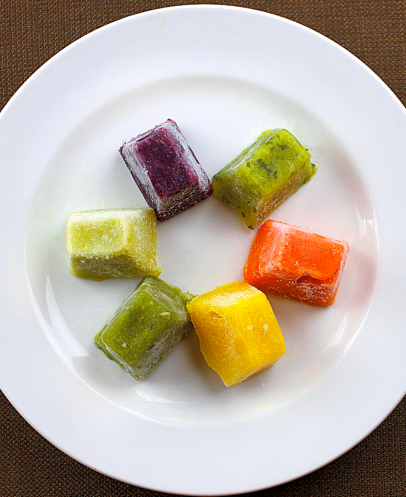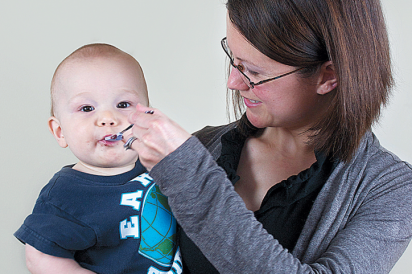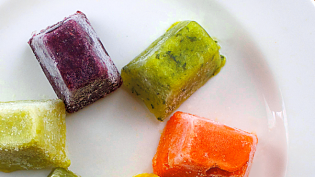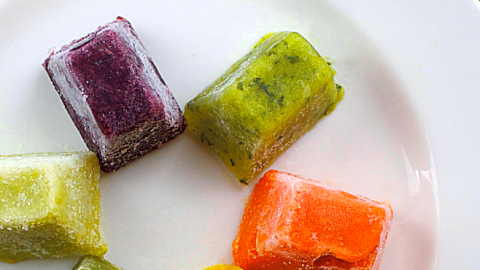From Farm to Highchair: Homemade Baby Food
Softened sweet potatoes, leeks and asparagus tumble around the carafe of a blender on Ashley Saylor's countertop while a neighboring rice cooker silently steams pears. Today, Saylor's Broad Ripple kitchen has transformed into a small-scale baby food factory. Ice cube trays are filled with the multicolored purées and stashed in the freezer, awaiting 10- month-old Henry's dinnertime.
Discouraged by baby foods on the market, Saylor made the decision early in her pregnancy to home make food. "If you take a look at the baby food choices, it's not surprising that kids grow up only wanting to eat junk," says the stay-at-home mom. Motivated to instill healthy eating in Henry early, Saylor serves fruit and vegetable purées that she feels good about and he loves to eat. Among Henry's favorites are pears with blueberries, squash with zucchini, and sweet potato with leek and asparagus.
Henry's nutritional foundation will continue building after he outgrows purées. "I'd like to try my hand at making my own puffs and teething biscuits," says Saylor about her next undertaking.
Financially, homemade makes sense. Saylor estimates a month of organic jarred baby food costs around $180. By buying in season, shopping at farmers' markets and gardening, Saylor's own budget is a quarter of that number.
Parents may assume the tradeoff for the lower cost is a hefty time commitment, but Saylor says that isn't the case. "It's just a regular part of my day," she notes. By batch processing, her hands-on time is only a few hours a month.
Saylor recognizes homemade baby food isn't for everyone–she even supplements with jarred food when traveling. "For some families it's a necessity," she says about store-bought food. More than focusing on store-bought versus homemade, Saylor wants parents to be aware of what's in their baby's food. "If you look at the back of some baby food jars there are ingredients [you] can't pronounce," she says. "I mainly wanted to know that I had control over the ingredients going into my son's food."
Do-It-Yourself tips
Interested in experimenting with homemade baby food? Saylor offers up these tips:
• There is no need to buy specialized gadgets to make baby food–most people have everything they need already in their kitchen. Saylor says a blender, ice cube trays and rice cooker are her go-to tools. The "steam" function on her rice cooker softens fruit and veggies while she does other things around the house.
• Puréeing daily is not realistic for many parents. Make enough food for a few weeks and freeze it to make the most out of your time in the kitchen.
• Make sure you have plenty of ice cube trays. The small portion size of the cubes helps avoid wasted food. Once the purées have frozen solid, store the cubes in labeled freezer bags.
• Think outside the box. One of the best things about homemaking baby food is the ability to come up with combinations not found on store shelves. Need some inspiration? Saylor relies on such books as Cooking for Baby by Lisa Barnes and Blender Baby Food by Nicole Young.







